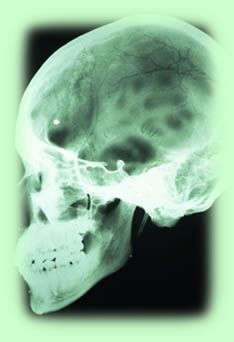U.S. Military Establishes Brain Tissue Repository For Study Of Traumatic Brain Injury

The U.S. military has established what may be the world's first repository of brain tissue for the study of traumatic brain injury (TBI), which is said to be the "signature" injury of the recent wars in Iraq and Afghanistan.
In furthering the study of the condition with hope for better prevention and treatment, the military will ask for persmission from families of deceased service members to retain specimens. They hope to collect several hundred samples for study by researchers.
"We have been at war for more than a decade and our men and women have sacrificed," Dr. Jonathan Woodson, assistant secretary of defense, told reporters. "The military health care system is bringing all the resources it can to better understand how to prevent, diagnose and treat traumatic brain injuries and to ensure that service members have productive and long, quality lives."
Funded by a federal grant to advance the science of TBI medicine for military patients, the Center for Neuroscience and Regenerative Medicine Brain Tissue for Traumatic Brain Injury has been established at the Uniformed Services University of the Health Sciences in Bethesda, Md., near the Walter Reed National Military Medical Center.
"Our research efforts and treatment protocols are all geared toward improving care for these victims," Woodson said. "And that will have benefits to the American public at large."
Military researchers at the center will investigate how traumatic head traumas lead to the condition of chronic traumatic encephalopathy, a neurogenerative disorder involving the progressive accumulation of a protein in nerve cells within certain areas of the brain. As the condition progresses, it impairs brain function and leads to symptoms commonly seen in patients such as former boxers, who are said to be "punch drunk."
Like retired boxers or football players with multiple hits to the head, many service members are returning home from war with multiple head injuries, from improvised explosive devices to other incidents causing head trauma, according to Dr. Daniel Perl, a neuropathologist and director of the new brain tissue repository. The military members "are coming home with troubling, persistent problems and we don't know the nature of this, whether it's related to psychiatric responses from engagement in warfare or related to actual damage to the brain, as seen in football players."
For the military, the causes of complications related to TBI remain an area of basic science yet to be fully discovered.



























